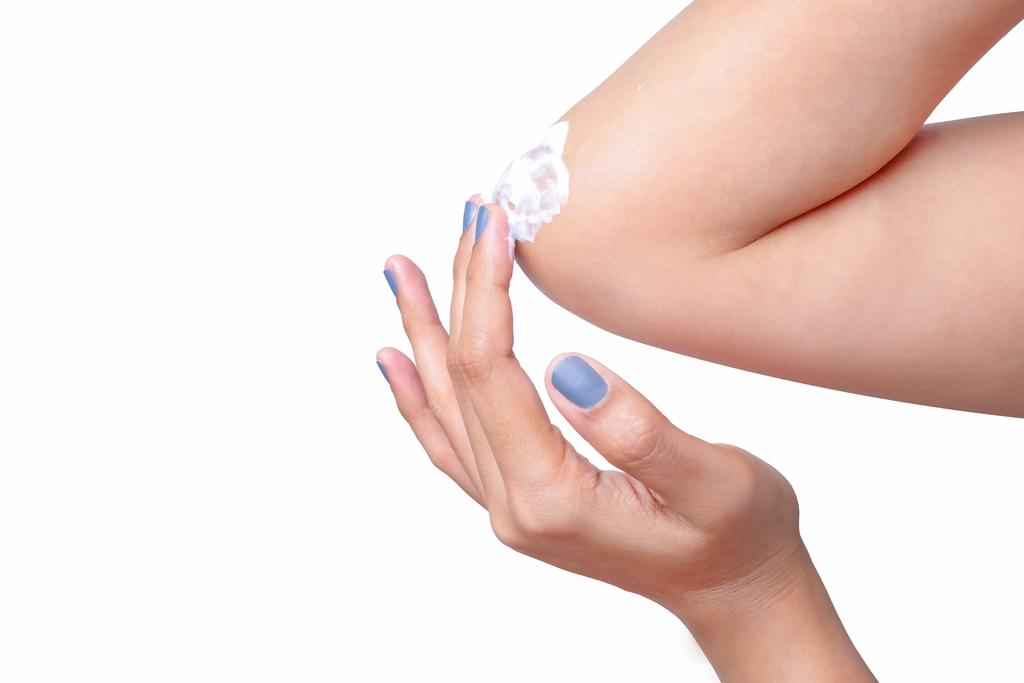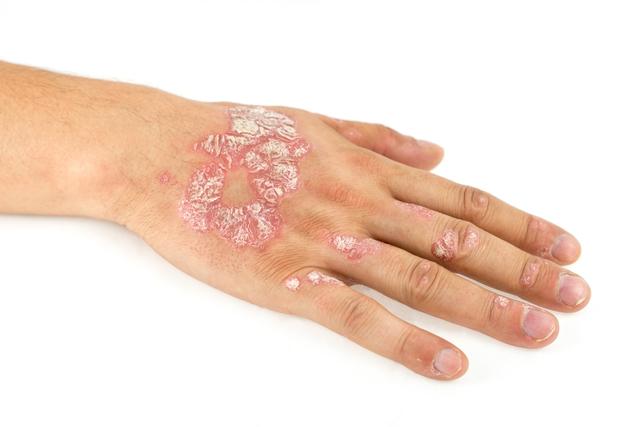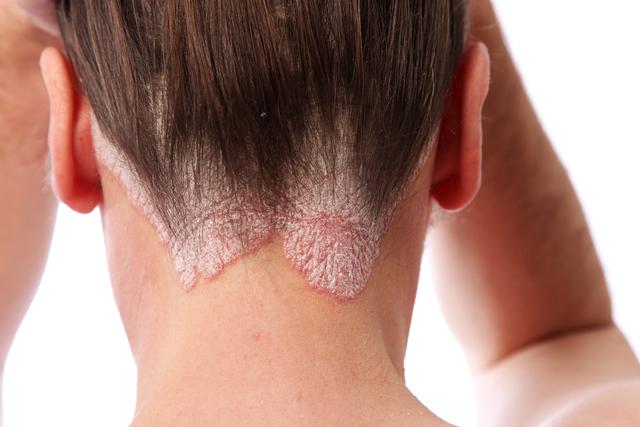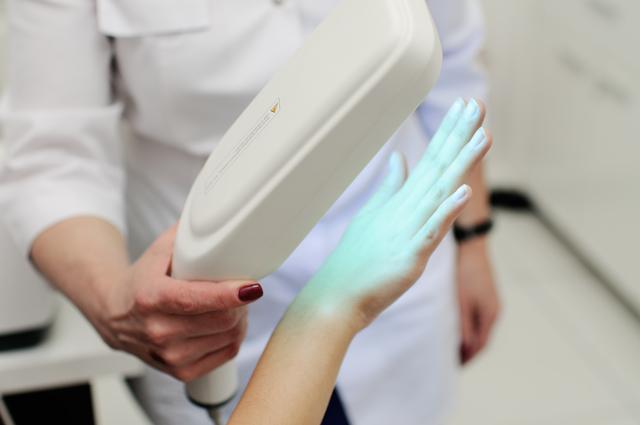
Psoriasis is a disease which, because of too low social awareness, often causes exclusion. Meanwhile, psoriasis is not contagious and does not pose a threat to the environment of a sick person, so it should not cause fear or be a reason for rejection. Unfortunately, this is still happening very often, which is why I think it is worth getting to know her better and understand how important our support is for people who are struggling with it. Today on my blog about what psoriasis actually is, how it manifests itself and who it concerns.
Psoriasis, once confused with leprosy, nowadays considered an autoimmune disease, is a chronic disease characterized by periods of remission followed by exacerbations of the disease. Due to the fact that there are several types of this disease, the course can be very diverse and, unfortunately, if it manifests itself, it remains with the patient for life.
Psoriasis is one of the most common skin conditions with a typical symptom of scaly patches. It can affect anyone, but much more often than children suffer from adults, and it affects both women and men. Unfortunately, it is a disease that not only affects the patient's external appearance, but also very difficult his daily functioning, and what is worse is also the cause of mental disorders.
Too fast and bad
The skin of a healthy person needs about 28 days to regenerate, in people with psoriasis, the skin cells divide about 7 times faster, i.e. the process of their complete replacement takes about 4 days. It is excessive production of the epidermis that leads to the formation of lesions in people affected by psoriasis.

What's behind it?
Unfortunately, it is still difficult to answer this question unambiguously, genes and the immune system are blamed here, which for unknown reasons, instead of protecting us, turns against us, and chronic inflammation arises within the skin. There are also a number of factors that trigger psoriasis, increase its symptoms, or accelerate its recurrence. Belong to them:
- Infections, streptococcal infections are the most dangerous, but other bacteria, viruses and fungi can also trigger it. Particular attention should be paid to throat, ear and bronchial infections. These types of infections can lead to the first signs of drip psoriasis, most often diagnosed in children.
- Injuries, very often the symptoms of psoriasis appear or intensify as a result of mechanical damage to the skin, then we are talking about the Koebner phenomenon.
- Stress is also recognized as a factor that can activate psoriasis, cause its first symptoms, aggravate existing or reduce remission.
- Drugs, it happens that psoriasis increases as a result of taking certain medications, e.g. used to treat depression (containing lithium carbonate), beta-blockers, improper treatment with corticosteroids, and even some of the nonsteroidal anti-inflammatory drugs.
It also happens that psoriasis is caused, accelerated by relapse or exacerbation of symptoms by other factors, e.g. hormonal disorders, poor diet, excessive alcohol consumption or smoking.
The skin condition also changes with the changing seasons. In the winter, when we stay in heated rooms, the skin dries faster and the symptoms of psoriasis get worse, while in the summer, when the skin has more contact with the sun, the lesions decrease and sometimes even completely disappear.

Different types, different symptoms
Plaque psoriasis is most common, red plaques appearing on the skin, covered with white scales and clearly demarcated lesions from healthy skin. Plaques often occur symmetrically, and the most characteristic places where they appear are knees, elbows, the sacrum and the scalp. Patients also often complain of persistent itching, skin pruritus in places where lesions appear. In turn, drip psoriasis takes the form of small red, scaly, drop-like lesions that are most commonly located on the torso, limbs, and top of the head. This type of psoriasis is most common in children and adolescents. Pustular psoriasis is characterized by the appearance of small pustules filled with pus very often surrounded by erythema. Changes can occur all over the body, but most often they occur on the limbs. Inverted psoriasis occurs in the form of smooth red patches that appear mainly in the folds and folds of the skin, e.g. in the bends of the elbows, under the knees, under the breasts or in the groin. The affected skin is very delicate and prone to irritation, which is why inflammation often occurs in this form of the disease. Nail psoriasis, on the other hand, usually occurs with another type of psoriasis, although of course there are also cases when it is its only form. Patients notice indentations on the nails and psoriatic papules located under the plate and softened horn masses. The nails turn yellow or white, do not adhere to the ground, delaminate, and fall off in the acute course of the disease. The most severe form of psoriasis is psoriatic erythroderma. The changes occur all over the body, they are accompanied by persistent itching and pain, and the affected skin can go down with entire patches. The disease can be life-threatening, fortunately it is very rare.

How to care for sick skin?
Because the causes of the disease have not been fully understood, there is no drug that can cure psoriasis. The therapy is therefore only symptomatic and its task is to reduce the discomfort. Psoriasis treatment is also appropriate skin care, which, in combination with the preparations recommended by the doctor, can extend the period of remission. It is very important to use cosmetics designed for sensitive skin. It is necessary to constantly clean it, moisturize it and soothe irritation and itching. Cosmetics containing light ichthyol are often recommended, they help regulate the multiplication of skin cells and significantly reduce irritation, relieve itching, and thanks to their antibacterial and antiviral properties reduce the risk of infection. For skin care of people suffering from psoriasis, it is also recommended to use emollients that effectively protect the skin against water loss. It is also extremely important to use preparations that gently exfoliate the epidermis, e.g. those containing urea are recommended. It is absolutely necessary to give up soaps and replace them with foams, gels or emulsions without soap specially formulated for delicate skin. Cosmetics containing allergenic fragrances and dyes that may further irritate and dry the skin are also unsuitable. It should also be remembered that suffering from psoriasis, we can not afford to give up proper care, even during remission. If we properly care for our skin and follow the doctor's recommendations, we will significantly extend the asymptomatic period of the disease and make its recurrence more gentle.
In the treatment of psoriasis, phototherapy is also very often used, benefiting from the beneficial effects of UVA and UVB radiation. However, it should be remembered that not everyone can undergo this form of treatment, so it is very important that the doctor decides about it, who will also adapt the treatments to the individual needs of the patient and will constantly monitor the progress of treatment. In severe cases of psoriasis, it may be necessary to undergo biological therapy.

Psoriasis, although not infectious disease, unfortunately very often, is the cause of embarrassment and withdrawal from the lives of those affected. It happens that it leads to severe depression, which unfortunately leads to the resignation from treatment, intensifies the symptoms of the disease and threatens the patient's life. That is why it is very important not only to quickly start proper treatment, but also to spread information about psoriasis so that people in the patient's immediate environment can support him and help him go through a hard time when the symptoms of the disease are worse.
